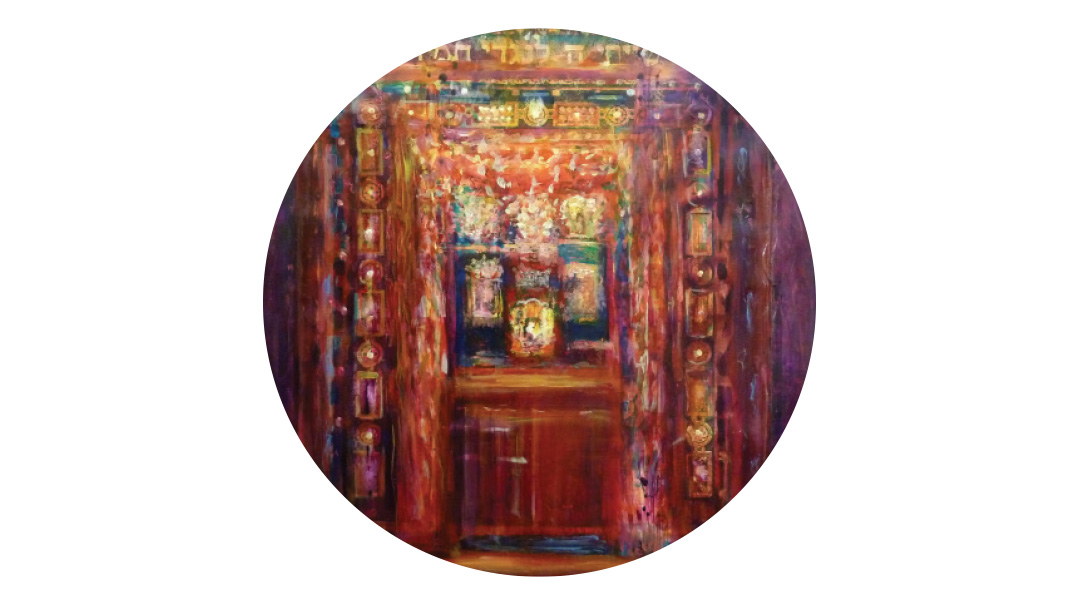Foundation of Gratitude


T hree minutes.
If three minutes a day could change your life would you let the opportunity slip by?
Each morning Hashem gives us a gift. It’s wrapped in 15 birchos hashachar gifted to us by the Anshei Knesses Hagedolah. It takes a mere three minutes to unwrap.
Hidden Foundations
The Sydney Opera House with its soaring white roof and sail-shaped shells is an architectural icon of the 20th century. Each year more than 1.2 million people visit take in a concert and admire the building. What they may not know is that the opera house is supported by 588 concrete piers sunk as deep as 82 feet (25 meters) below sea level. Without these the entire edifice would crumble.
A building’s foundation enables it to withstand winds storms even earthquakes. To ignore the foundation is to ignore the hidden key that enables these beautiful buildings to stand. Foundations are not exclusively within the purview of architecture. Our lives too have solid foundations — and paying attention to them enables us to function meaningfully.
The 15 birchos hashachar are a daily reminder to revisit the foundations of our lives. Originally these brachos were intertwined with the morning routine. As a person opened his eyes stood up slipped on his shoes the relevant brachah was said. When there was a fear that people would be saying these brachos in an unclean state it was established that they be said as part of Shacharis.
Why were these specific things chosen? How can we once again intertwine these brachos with the minutiae of our lives? And most crucial of all how do they form the foundation of our day?
Beyond Banal
The morning rush. It seems like no matter how organized we are there’s always a permission slip to sign a stray shoe to find a mug of coffee that’s barely been drunk.
Within this frenzy theoretically we take a few moments to express our gratitude and dependence on Hashem. Is it really possible to do this in a meaningful way?
Rav Wolbe likens saying brachos to stoking coals: when they’re fanned they burst into flame emitting light and heat. He advises us to stop after each brachah and take a few seconds to think what we’re thanking Hashem for. Thanking Hashem for every small aspect of daily life reminds us of our complete dependence on Him. When saying these brachos we notice that nothing is too small to be worthy of expressing our gratitude. This ushers in a day of connection to Hashem. We realize that everything is a gift; Hashem infuses us with the ability to function in all aspects of our lives.
The goal of these blessings is to be able to move from the foundational gifts with which Hashem blesses us and transfer our awareness of His benevolence to all aspects of our day. When we’re successful in our business endeavors in the projects we undertake when we find a good deal or the perfect venue for our simchah — or even a convenient parking spot — we understand that these too are gifts from Above; they’re manifestations of Hashem “opening our eyes” and thereby helping us make the right choice. When we’re unsure about which path to choose and we make the right choice we understand that it is Hashem Who “leads the footsteps of man.”
But at times it’s hard to summon up feelings of gratitude; life feels banal and bland. It’s the same old car pool same old issues with the boss same old tantrums. We can look at each day with eyes that are tired and disillusioned or we can look at life through the lens of the birchos hashachar. How do we choose the latter?
The Power of Now
In one word: mindfulness. Mindfulness sounds overtly new-agey but in its authentic form it’s a deeply Jewish concept. There’s a well-known principle: Ha’oseik b’mitzvah patur min hamitzvah — one who is involved in one mitzvah is exempt from another. Beyond the halachic parameters this sets down it also conveys an important attitude. While we do one mitzvah we have to invest ourselves into that mitzvah so fully that it encompasses all of our present reality. The mitzvah becomes an immersive experience. In our fast-paced blink-swipe generation this might be hard to relate to but it’s the key to a powerful and meaningful experience.
The Kozhnitzer Maggid echoes this. He asks what’s the most important mitzvah of all. His answer is mind-blowing. The most important mitzvah he says is the mitzvah you’re doing right now. For a moment forget what the rest of the day might bring your schedule your worries. Invest everything you are everything you have into this sacred act.
It takes practice to clear your mind of clutter and find the quality of stillness. But when you’ve found that stillness you can then direct your mind to whatever is at hand — and find tremendous satisfaction there.
This applies to every area of life. Your four-year-old walks in from school waving her latest creation. You can pause in your phone conversation say “Beautiful sweetie ” and return to the call. Or you can put aside everything else in your mind find the stillness within and then direct your focus to your daughter. Take the picture in your hand. Let her explain its significance. Look at the colors she used. How she’s gone from drawing people who are big heads on legs to people with bodies and arms — a whole new developmental stage. Watch the smile on her face. Savor the interaction. That’s called living mindfully.
Such a life fills us with gratitude. It changes chores into moments of giving. It calms the frenzy. And it turns saying brachos into three minutes of love gratitude and connection that will spill over into the entire day.
Rav Gamliel Rabinowitz observes that thanking Hashem for our personal gifts is a prelude to the rest of tefillah. In Pesukei D’zimra we move from focusing on our own lives and personal gifts to thanking Hashem for the general beauty found in the world the beauty of nature and the miracles of our history. The foundation however is the intensely powerful well of personal gratitude.
Emunah Builders
Rav Wolbe highlights another aspect of the morning brachos: emunah. Each brachah teaches us a lesson in emunah and helps us gain insight into our relationship with Hashem. We know the institution of saying 100 brachos each day was intended to build a person’s yiras Hashem. Just saying the first half of the brachah with proper intent will change us completely Rav Wolbe notes.
Imagine mindfully focusing in on each word:
Baruch — Hashem is the source of all blessing.
Atah — We have a personal relationship such that we can address Hashem in the second person.
Hashem — Creator of all things found in this world.
Elokeinu — Hashem has a personal relationship with each one of us; He watches over us with Divine Providence.
Finally He is Melech ha’olam Who allocates and distributes to every person exactly what they need. If we stop and think about we’re saying over time just the first half of the brachos can create within us a bedrock of emunah and connection.
No wonder Rebbetzin Kanievsky a”h bequeathed to us such a special gift by inspiring young and old to have people answer Amen to these brachos every morning. Saying these brachos out loud helps us to think and concentrate on what we’re saying. Those listening focus on what’s being said so as to acknowledge it with Amen. When proper intent is put into each brachah when our mindset is attuned to connection to Hashem with each word the foundations are immovable.
And all it takes is three minutes in the morning. (Originally featured in Family First Issue 548)
Oops! We could not locate your form.







